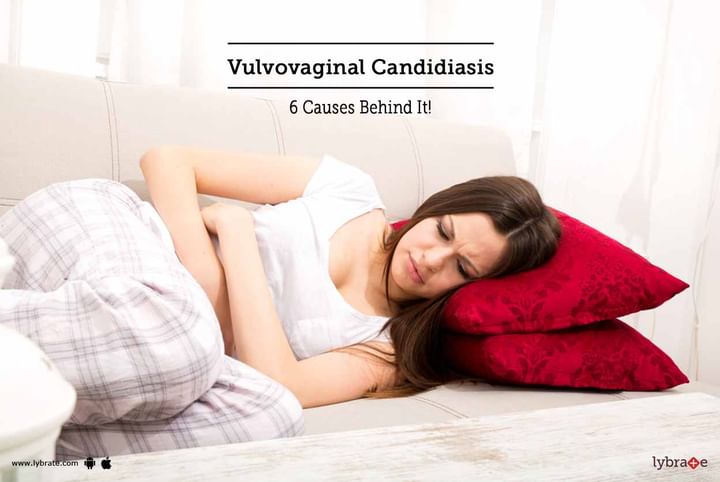Get the App
For Doctors
Login/Sign-up
Last Updated: Oct 23, 2019
BookMark
Report
Vulvovaginal Candidiasis - 6 Causes Behind It!
Vulvovaginal candidiasis refers to the infection of the vagina, accompanied by itching in the vulva. It is caused by a particular strand of yeast known as candida albicans. There are several reasons which contribute to the onset of vulvovaginal candidiasis, some of them are:
- Pregnancy: Pregnancy is a time when the body of a woman undergoes a plethora of changes. With the upsurge of certain hormones, this is also the most potent time when they tend to suffer from vulvovaginal candidiasis.
- Higher dose of estrogen: Estrogen is responsible for maturing the vagina as well as provides glycogen which facilitates the growth of candida albicans. Subsequently, older and younger women, who are less prone to estrogen disorder, suffer the least from vulvovaginal candidiasis.
- Uncontrolled diabetes: Those women who suffer from uncontrolled diabetes for a long period of time are more susceptible to vulvovaginal candidiasis. Although the accurate reason is yet to be known, according to research, the presence of excessive glucose in the blood triggers the production of yeast in the vulva and the vagina.
- Weak immune system: A strong immune system is a boon which only few people enjoy. Consequently, the very reverse, a weak immune system is extremely fatal, one that invites several complications; vulvovaginal candidiasis being one of them.
- Stress: Excessive stress and exhaustion may also be considered as a probable reason that causes imbalance in your system.
- Hormone replacement therapy: Estrogen is commonly held as a possible culprit that causes vulvovaginal candidiasis. Therefore in those hormonal replacement therapies, where estrogen is artificially administered into the body significantly increases the risk of an impending vulvovaginal candidiasis.
In spite of its frequent occurrences, it is possible to treat this infection. Some of the ways by which it can be done are:
- Anti-fungal cream: Those creams which negate the growth of fungus are, for obvious reasons considered as the most preferred choice to combat vulvovaginal candidiasis. There are plenty of anti-fungal creams available in the market, which can be misleading, therefore you must choose wisely.
- Diflucan: This medication works wonders in treating vulvovaginal candidiasis. This must be orally administered under the doctor's supervision to enjoy the results. If you wish to discuss about any specific problem, you can consult a gynaecologist.



+1.svg)
